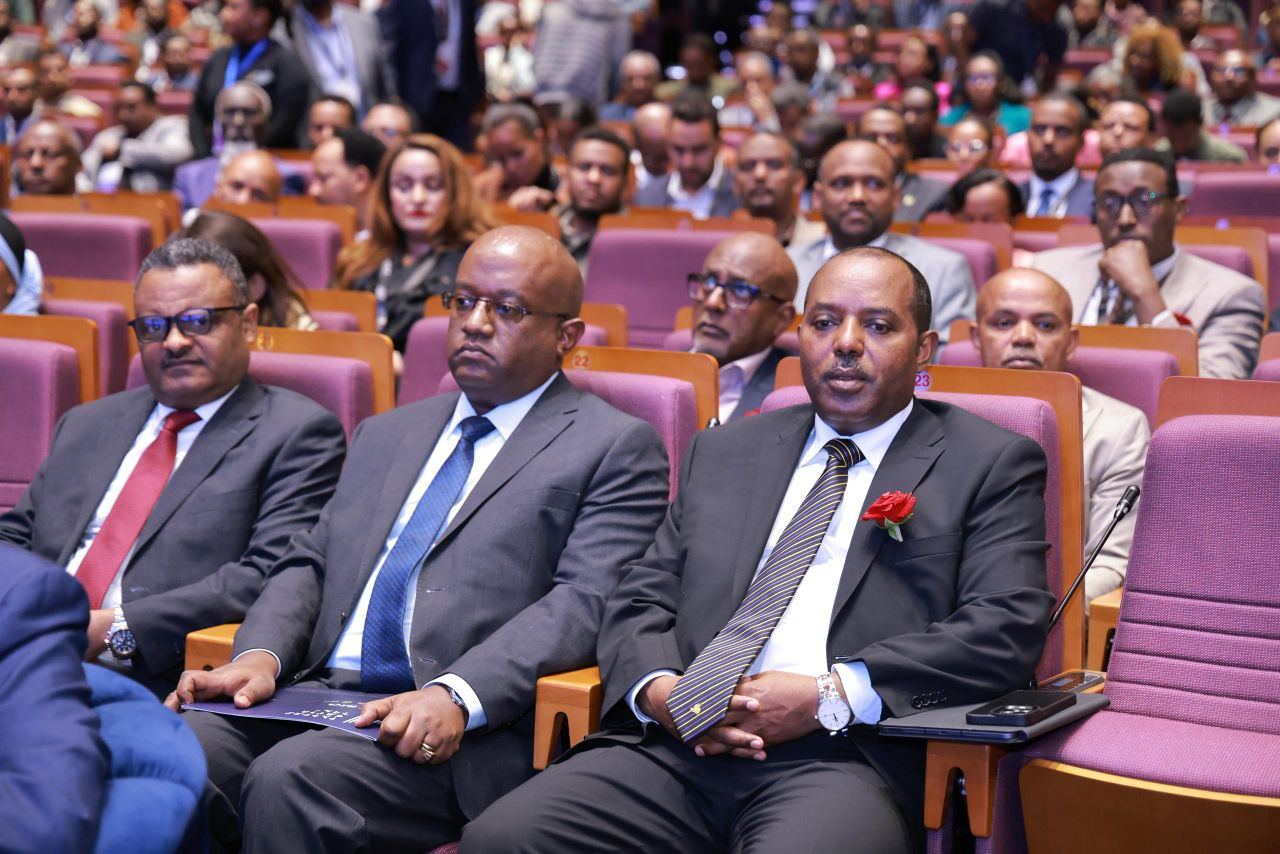Ethiopia Secures Record 32. 1 Billion USD in Foreign Revenues - ENA English
Ethiopia Secures Record 32. 1 Billion USD in Foreign Revenues

Addis Ababa, July 22, 2025 (ENA)—Ethiopia has disclosed that it has secured a record 32.1 billion US dollars from foreign revenue sources in the 2024/25 fiscal year.
Up from 24 billion USD in the prior fiscal year, the record shows notable growth.
The Ethiopian Finance Forum officially commenced this morning, bringing together policymakers, private sector representatives, and other key players in the financial sector.
The forum centered on critical issues such as sustainable development, macroeconomic reforms, and trade challenges facing the country.
At this significant forum, Finance Minister Ahmed Shide and the Governor of the National Bank of Ethiopia (NBE), Mamo Mihretu delivered impactful keynote addresses.
In his remarks, Finance Minister Ahmed Shide emphasized that Ethiopia’s ongoing macroeconomic reform agenda has played a pivotal role in driving multifaceted growth across various sectors, including agriculture, industry, tourism, services, and mining.
On his part, Governor of NBE, Mamo acknowledged the nation's rich history in defending its independence and sovereignty.
However, he argued the country has not achieved the desired economic development.
According to him, under the leadership of Prime Minister Abiy Ahmed, Ethiopia has been striving to eradicate poverty—an essential step toward achieving full and holistic sovereignty.
Governor Mamo went on to address the key obstacles that have hindered Ethiopia’s investment climate and economic growth, including persistently high inflation, a shortage of foreign exchange, and a lack of macroeconomic stability.
In spite of enduring difficulties, Mamo underscored the government’s sustained commitment to tackling structural challenges within the financial sector.
Particularly, the governor mentioned a series of well-researched macroeconomic reforms that have been implemented over the past several months. The reforms are leading to significant as well as positive changes, according to him.
Notably, the success has yielded encouraging improvements in the country's foreign exchange reserves, he noted. He stated that total foreign currency inflows from all sources increased from 24.7 billion USD last year to 32.1 billion USD this year—serving as a key indicator of economic stability and progress.
Following the macroeconomic reform, Foreign Exchange Bureaus have been operating for the first time. This has tremendously increased the availability of foreign exchange.
Moreover, Governor Mamo also noted the substantial reduction in inflation, which has dropped by 50 percent compared to previous years. These results, he explained, reflect the positive impact of the ongoing reforms on Ethiopia’s economy.
However, Mamo admitted that inflation still remains a challenge.
Despite these advancements, Governor Mamo acknowledged that much remains to be done. The focus now is on improving living costs and continuing to propel economic growth to ensure long-term prosperity for the nation, he pointed out.
Finance Minister Ahmed Shide also underscored the far-reaching economic reforms that have laid a strong foundation for sustainable and inclusive economic development throughout the country.
He particularly emphasized the macroeconomic reforms, adding that “the reforms have brought about significant structural changes.”
He further explained that the reforms have brought about significant structural changes aimed at stabilizing the national economy.
Key achievements include a marked reduction in inflation, an increase in foreign exchange reserves, and a notable enhancement of overall macroeconomic stability. These outcomes reflect the government's commitment to restoring balance and confidence in the financial system.
Moreover, the reform has helped reduce the government’s fiscal deficit. Over the past few years, public expenditures have been guided by principles of savings and efficient resource utilization.
In a historic shift, the government has managed to finance its operations without borrowing from the National Bank of Ethiopia. “This is the first time in history that the government has avoided borrowing from the National Bank,” Ahmed stated, signaling a shift toward more sustainable fiscal management.
The macroeconomic reform program has also been designed to support regional economic integration.
The minister also highlighted Ethiopia’s strategic efforts to strengthen connectivity with neighboring countries through major infrastructure investments. These include initiatives in cross-border energy distribution, railway and express road construction, and advancements in digital infrastructure. Such efforts aim to foster greater economic cooperation and interdependence in the region.
Moreover, the minister stressed the government's practical commitment to expanding the role of the private sector in national development.
He noted that policies and reforms are being implemented to encourage private sector participation, recognizing its vital role in job creation and economic diversification.
In this context, Ahmed underscored the importance of finance forums such as the one being held, stating that such platforms are crucial for identifying challenges in the financial sector. They serve as a space to develop collaborative solutions that will further enhance the private sector’s meaningful involvement in the economy.